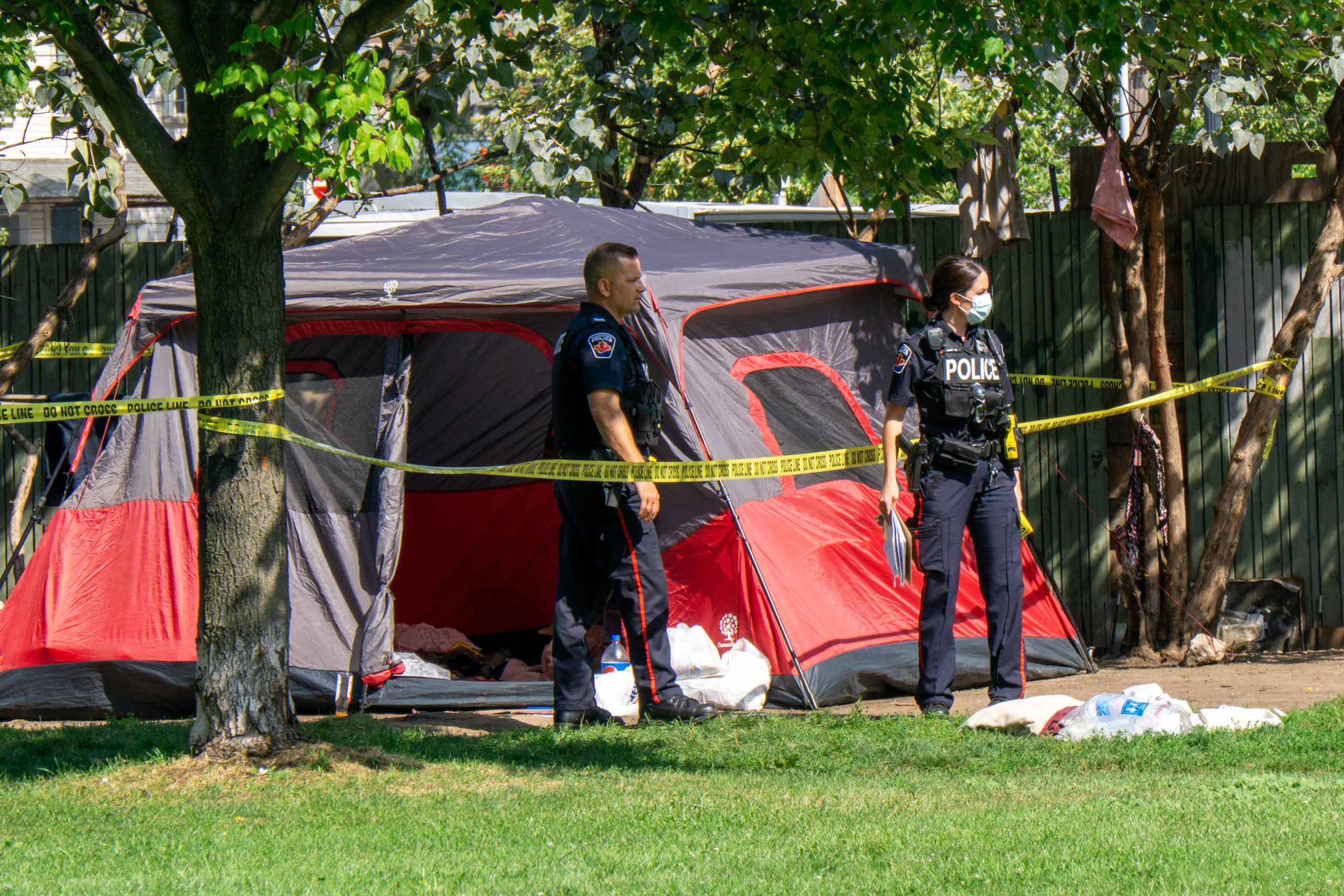Youth and volunteers from parishes across the diocese gathered virtually on Zoom last March to dive deep into the social justice issue of the housing crisis—a theme the youth were truly interested in and had selected during the last Youth Synod gathering.
The event started with a morning worship led by youth and the newly ordained Matthew Gillard from St. George’s, St. Catharines. The worship beautifully threaded Scripture messages and prayers reminding us to give graciously, that God provides us with all that we need, and to love our neighbours as ourselves.
We were joined by two keynote speakers: Sierra Robertson, from the YWCA transitional housing for adults, and Kait Perkons, from the Good Shepherd Notre Dame House. Sierra and Kait are two alumni youth ministry participants who attended Youth Synod, NYC, and the Youth Leadership Training Program during their adolescent years. Now, as adults, they often volunteer for youth ministry events and programs.
Kait was the first guest speaker to begin answering a plethora of questions in an interview format. She explained that at the Good Shepherd Notre Dame House, her role is to support youth ages 16–21 who are experiencing homelessness and/or need emergency supports.
One of the most talked-about moments of the day was when Kait answered the question: “What is the biggest misconception of people experiencing homelessness?” She responded saying,
“People think of the term homeless as something that is removed from us personally, as if it is something that will not happen to us. What they do not realize is that people you know may be one or two decisions away from a bad situation where they cannot keep their housing. Sometimes it’s just really bad luck. Youth are not at the shelter because of their own personal failing or lack of trying; these people are here because something bad happened to them and they just need support to help get them through. This can happen to any of us at any given time. People experiencing homeless are seen as others, but we need to look at them as our friends and neighbours. This is an important teaching from Jesus; as Christians we must remember to love our neighbours as ourselves.”
Sierra Robertson shared her experiences as an employee of three years at the YWCA working in the Adult Transitional Housing Centre. All who were present were taken aback by her explanation of the gender inequalities present within the system. Sierra revealed that there is a large discrepancy in the number of beds available for women. She explained that one of the reasons for this is that abuse and domestic violence force women and their children out of their homes, creating higher precarious housing and homelessness rates amongst women.
Both speakers highlighted hidden homeless or precarious housing. Mary Gordon, a youth ministry volunteer from Church of the Resurrection, was moved by this explanation.
“We probably have all had that one friend who stayed a little longer than we were expecting. Those people who stay a little longer, we typically do not think of it as a homeless situation. Not having a secure place to stay and/or couch surfing is hidden homelessness, often experienced by youth.”
Paige Keller, a youth delegate from St. George’s, Guelph, shared this reflection from Youth Synod: “What I learnt and am taking away from Youth Synod is the importance of language. To refer to people without homes as people experiencing homelessness.” When asked what your Christian response to the housing crisis would be, Paige answered: “As a parishioner of St. George’s, Guelph, I will continue to volunteer at the local soup kitchen and collect supplies and clothing for the shelters and programs in the Guelph community.”
Another highlight from Youth Synod was hearing youth delegates voice their frustrations with the clearing of encampments. Our guest speakers explained that the clearing of encampments is not a solution to the housing crisis. People are living in tents because they have nowhere else to go, as the shelters are full. There are several barriers that people face while living on the street as they try to access the supports needed. People are wait-listed for months and are told to call back daily when most of them do not own or have access to phones. Sierra explained, “When we throw away people’s belongings, we are throwing away everything they have without giving them a solution.” The clearing of encampments usually happens when people call in and complain about not wanting to look at it.
As we reached the end of the event, there was an overwhelming shared appreciation for the time spent together, our guest speakers, the fruitful dialogue, new learnings, and the opportunity to shine light on this integral social justice issue. The delegates and staff volunteers left Youth Synod with many ways to respond to the housing crisis:
- Drop off supplies to those living in encampments: food, water, hygiene products, money, garbage bags (and help take away their garbage).
- Drop off supplies to local initiatives serving those precariously housed.
- Donate money to local initiatives.
- Follow local community legal aids and community initiatives on social media to stay informed.
- Write to your local governments.
- Be aware of language and join the conversation.
- Pray!
The next Youth Synod is on Saturday, October 15. Click here for more information.



Euchre and the Meaning of Life